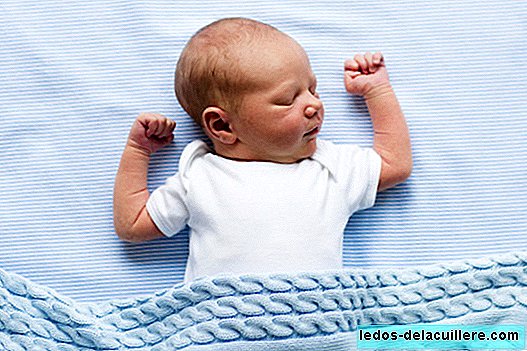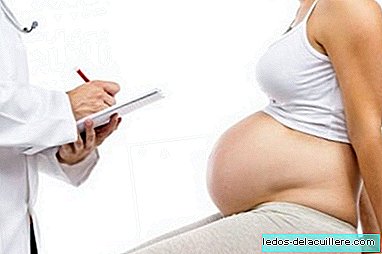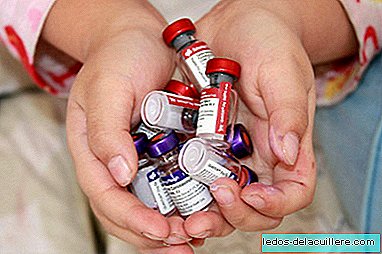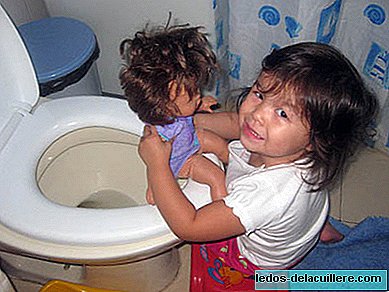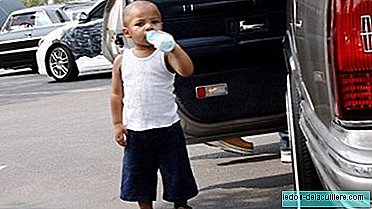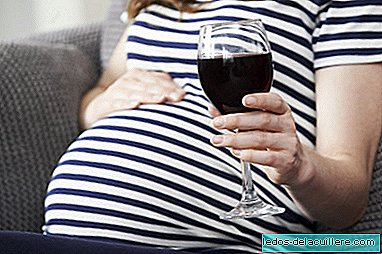
Alcohol consumption in pregnancy is so widespread and normalized that even in pregnancy there are those who believe that for a drink a day nothing happens. And of course, publications such as a book written by an American economist who started collecting some studies do not help, and calmly disseminates that it is "quite safe to drink a glass of wine a day since the second trimester of pregnancy."
This is not like this. Studies make it clear that there is no safe amount of alcohol in pregnancy and hence the recommendations of doctors and organizations such as WHO and the Centers for Disease Control and Prevention of the United States (CDC) are: if you expect a baby, not a drop.
A controversial book on popular beliefs
As we read in an article published by El País, the book is titled 'Expecting Better' (which could be translated into "Expecting Better" edited by Penguin Books), and was written by Emily Oster, an American economist at Brown University, specialized in compaction of health related data.
While pregnant, she decided to collect data from studies published since the 1980s related to pregnancy. In his book, according to the article, he dismantles "traditional beliefs about pregnancy" as, in addition to alcohol, that you can drink coffee and eat raw fish with peace of mind and that bed rest to prevent premature birth does not have much base. Then he wrote a second book on topics in parenting, but that's another story.
"It is quite safe to drink a glass of wine a day from the second trimester of pregnancy, you can drink coffee, eat raw fish and bed rest to avoid premature birth does not have much basis." A book dismantles the topics about pregnancy //t.co/NEvlDcoIry
- EL PAÍS (@el_pais) July 7, 2019
There are issues that could be discussed, of course there are many beliefs that are not true and are still repeated together. But what has no discussion is that neither alcohol nor consuming raw fish are safe in pregnancy. On the first we will talk next and on the fish, just say that anisakis is a parasite that can have raw fish and can cause poisoning or infections.
Alcohol harms the baby
What the mother drinks, crosses the placenta and reaches the baby, but it is sad that there is so little awareness about it.
Svetlana Popova, a scientist at the Center for Drug Addiction and Mental Health (CAMH) in Toronto (Canada) and associate professor at the Dalla Lana School of Public Health and at the Faculty of Social Work Factor Inwentash (FIFSW) of the University of Toronto, in a interview published by WHO and ensures that:
"We estimate that, worldwide, one in 10 women on average consume alcohol during pregnancy, and 20% of these women drink compulsively, which means they consume four or more alcoholic beverages on each occasion.
Binge drinking is a direct cause of fetal alcohol syndrome or TEAF (fetal alcohol spectrum disorder). These conclusions are alarming, as half of pregnancies in developed countries and more than 80% in developing countries are not planned. This means that many women do not realize that they are pregnant during the early stages of pregnancy and continue drinking. "
However small the amount consumed, the placenta does not filter the alcohol consumed by the mother. Alcohol consumption in pregnancy is one of the most frequent causes of mental retardation and is also related to other developmental risks such as malformations, growth retardation, low weight, learning problems, and in important consumption during pregnancy babies who They are born with fetal alcohol syndrome.
And the expert adds:
"In some countries the prevalence of TEAF (fetal alcohol spectrum disorder) may be higher than that of some common congenital defects such as anencephaly, Down syndrome, spina bifida and trisomy 18".
That is, it is compared with congenital defects, being even higher in some countries, as a result of something completely avoidable with a simple prevention: don't drink alcohol.
 In Babies and more Drinking small amounts of alcohol during pregnancy modifies babies' faces
In Babies and more Drinking small amounts of alcohol during pregnancy modifies babies' facesIn the United Kingdom, one of the countries most affected by this problem, government guidelines were maintained that recommended a maximum of two drinks per week for pregnant women, but these have changed in the light of new research. The conclusions are also clear about what is known as moderate consumption:
"The evidence on the effects of drinking up to 32 grams of alcohol per week is scarce. However, given that there is some evidence that even prenatal consumption of small amounts of alcohol is associated with a lower birth weight of the baby and with the premature births, Abstention should be recommended as a precautionary principle".
More awareness and less hoaxes
There should be greater awareness in society about the risks of alcohol consumption in general, and especially in pregnancy. Alcohol causes long-term psychological and neurological damage to the nervous system, and all the information available to pregnant women should be consistent in that regard, without giving rise to confusion or half measures. It is a stage in which the baby is in formation and it is very important to protect him from harmful substances that can affect his development.
Each organism is different, and what in a pregnant woman can do nothing, in another it can have serious consequences. There is no minimum amount of alcohol that can be considered safe, so, if you are pregnant, the recommended amount of alcohol is zero.
Even if you are looking to get pregnant, both you and your partner should follow the same recommendation. The CDC (Centers for Disease Control and Prevention) in the United States extends this recommendation to all women of childbearing age who do not use contraceptives since they drink alcohol during the first weeks, when the woman does not know if she is pregnant, It also poses a risk to the fetus.
 In Babies and more Zero alcohol in pregnancy: alcoholic beverages should warn in their labeling the risk of their consumption for pregnant women
In Babies and more Zero alcohol in pregnancy: alcoholic beverages should warn in their labeling the risk of their consumption for pregnant womenIn the networks, the reactions to the article did not wait. Health professionals like Julio Basulto or Lucía Mi Pediatra came out to deny what is defended in the book, because It is not a topic to be disassembled. It is science and denying it can put many pregnancies at risk.
What dismantles that book are not myths, @el_pais, but public health: one in 67 women who consume alcohol during pregnancy could give birth to a baby with fetal alcohol syndrome: //t.co/sBRHBNRr7j@GT_Alcohol_SEMI @drmiguelmarcos @pcamarelles //t.co/FiqV4Ux7SW
- Julio Basulto (@JulioBasulto_DN) July 7, 2019
What is quite certain is that if you drink alcohol during pregnancy the child may have serious complications: fetal alcohol syndrome, a 100% preventable disorder
- Lucía, mi Pediatra (@luciapediatra) July 7, 2019
THERE IS NO MINIMUM SAFE AMOUNT OF ALCOHOL in pregnancy. #SaludSinBulos @SaludsinBulos //t.co/V2fUrhVdEj //t.co/8LhWwLzv2N


